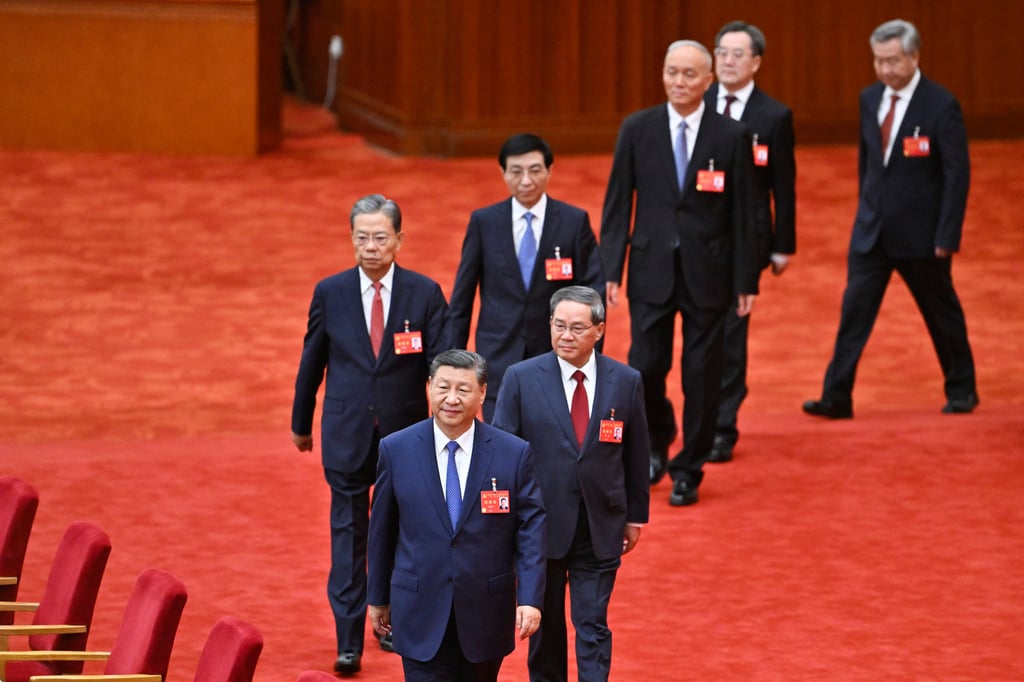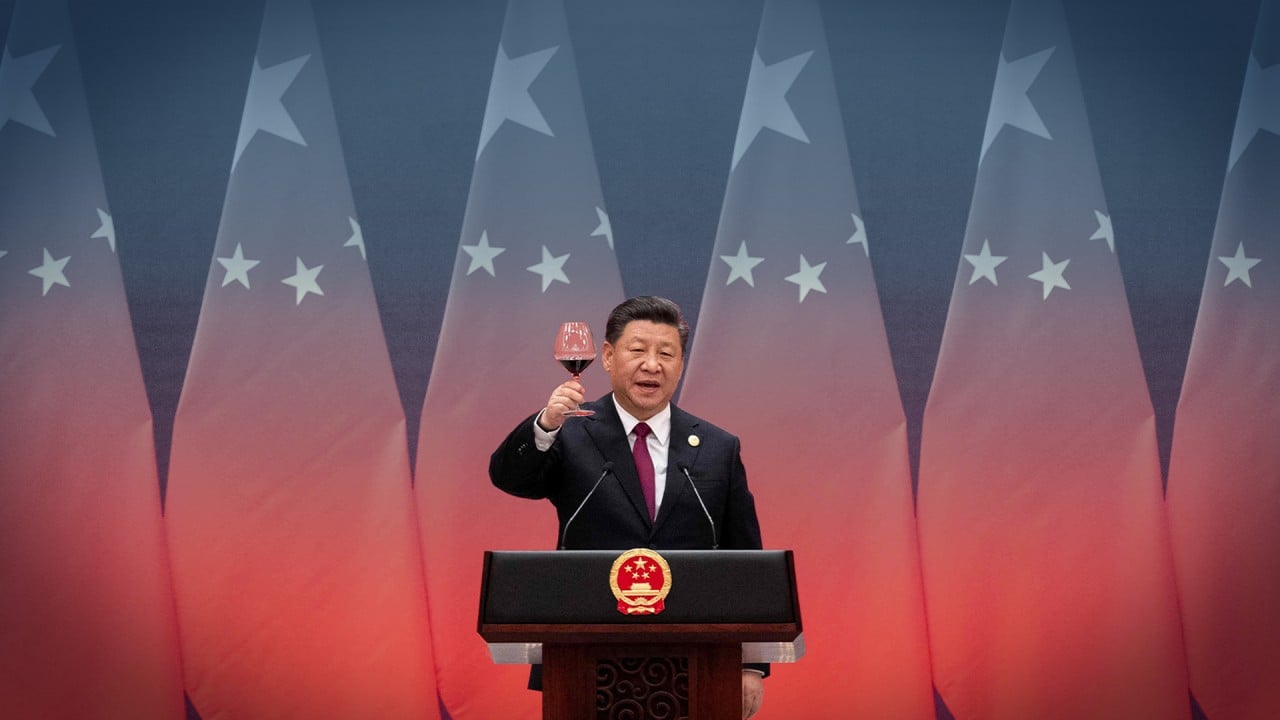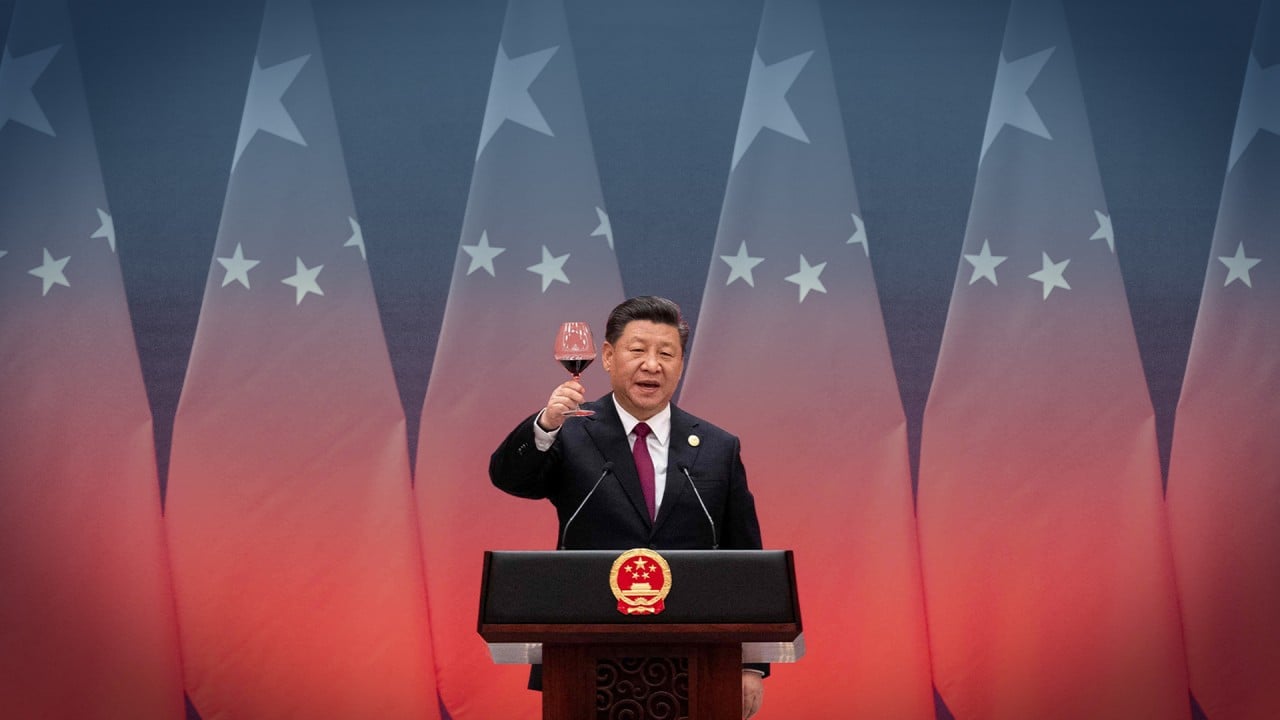In March 1994, Wang Huning was a star professor in political science at Shanghai’s prestigious Fudan University, whose dream was to “write more good books and teach more good students”, according to his diary from the time.
Instead, Wang’s career has taken him deep into the heart of elite politics in China. He has been an ideology guru for three of the country’s leaders, including President Xi Jinping, and is the ruling Communist Party’s fourth most senior official.
In a sign of his status, Wang was a deputy head on the Xi-led team that drafted the resolutions for last month’s third plenary session of the party’s Central Committee, setting China’s economic development tone for at least the next five years.
Wang, 68, stepped away from his ideology role and became chairman of political advisory body the National Committee of the Chinese People’s Political Consultative Conference (CPPCC) last year.
But he continues to serve on the Politburo Standing Committee, the party’s top decision-making body, where he was ideology and propaganda chief from 2017, in his first five-year term.
While Xi has remained exclusively in the pilot’s seat of the drafting process for all party plenum resolutions since 2012, he has always selected two or three deputy heads from the seven-strong Standing Committee.
Two sources with relevant knowledge said that, besides seeking his assistance in drafting the resolution for the latest plenum, Xi regularly asks for Wang’s input on his major speeches and statements.
Since 2017, when he first gained a seat on the seven-strong committee, Wang has served as a deputy head on one of these drafting teams three times, for some of the party’s most historic resolutions.
In 2021, he co-led the team that composed a resolution on the history of the Communist Party – only the third of its kind in the party’s 100 years. A year earlier, he played a similar role in drafting the outline for China’s 14th five-year plan.
Wang was also a vice-director of the drafting team for the 20th party congress in 2022, when Xi delivered the report which laid out his vision for the next five years to more than 2,000 delegates in Beijing.

Wang has also retained his position as deputy director of the Central Comprehensively Deepening Reforms Commission, a party group founded and chaired by Xi that met for fresh discussions on a range of issues just before the third plenum.
Wang’s positions have given him sway in a long list of policy areas, including Taiwan, ethnic minority groups, the border regions of Xinjiang and Tibet, as well as Beijing’s courtship of the country’s private sector.
According to Neil Thomas, a Chinese politics fellow at the Asia Society Policy Institute’s Centre for China Analysis, Wang’s role on the drafting team “shows that his political influence exceeds what is normal for a CPPCC chairman”.
“Wang appears to still serve as Xi’s brains trust for his domestic reform agenda,” Thomas said.
He is a political survivor who loyally served Jiang Zemin and Hu Jintao but found his greatest supporter in Xi Jinping
Wang had gained Xi’s trust because he “is a believer in centralising power, fighting corruption, and prioritising hi-tech growth and has helped to make these issues central to Xi’s political agenda”.
“He is a political survivor who loyally served Jiang Zemin and Hu Jintao but found his greatest supporter in Xi Jinping. Wang’s neo-authoritarian intellectual project is a perfect complement to Xi’s centralising political project,” he said.
Wang’s reputation was established in the early 1990s, with a number of published works – including a collection of his diaries – that made him a rarity among China’s career bureaucrats and articulated his political vision of “neo-authoritarianism”.
Rather than a Western-style system based on checks and balances, China “must discover new political values from our own cultural traditions”, Wang wrote in his 1994 diary.
He also noted that “China’s development requires an authority that can regulate the whole of society in a unified way” and weighed in on how to fight corruption.
In his 1991 book America Against America, Wang said Japan’s economic race with the US in the 1980s taught him that “individualism, hedonism and democratism” could be defeated by “collectivism, altruism and authoritarianism”.
In the 1980s, when he was developing his political theories, Wang attached great importance to the concentration of state power, according to Xia Ming, one of his former students at Fudan, who now teaches political science at the City University of New York.
“He believed that with its unique political ecology, China has a unique political path,” Xia said. Despite his familiarity with political thinkers like Hegel and Rousseau, Wang believed that he should be a defender of that path, Xia added.
“[Wang] thinks that with its large size, China must keep its authority on the central level to maintain its stability [and the West’s] path of liberalisation is not suitable for China because it is too big and too poor, especially with the conditions in rural areas and with its clans,” he said.
A political-science professor at Tsinghua University, who asked to remain anonymous, said Wang was very different from the Chinese intellectuals who looked to the West for inspiration after China opened its doors.
“Wang was not impressed by the Western style democracy of the US after he visited twice. He believed that was not suitable for China. Wang believed China must take a different development path from the US if it wants to overtake the US one day,” he said.
In 1995, Wang left Shanghai for Beijing to begin his political career as head of the policy team at the Central Policy Research Office, in support of then president Jiang Zemin.
Wang was not impressed by the Western style democracy of the US after he visited twice
The office is involved in drafting key documents for the leadership and advising the party on inner-party and domestic policies.
According to a mainland political analyst who interacted with Wang several times before his promotion to Beijing, it was after this move that the academic “retreated behind the scenes to provide advice to his political leaders”.
The party’s long-standing trust in Wang showed “its deep-rooted need for a sophisticated intellectual to explain the legitimacy of China’s one-party rule and party-state system both externally and internally”, he added.
For decades, Wang was known as purely a party theorist. In 2002, he was appointed director of the research office, a position he held for 18 years – the longest tenure of any official in the role.
While his position at the research office remained unchanged, his ranking in the party kept climbing – another rarity among Chinese officials. Notably, when Wang left the role in 2022, his successor’s party ranking was far below his own.
Wang helped Jiang and his successor as president, Hu Jintao, to build their own ideological systems that were later written into the party’s constitution. He also stood quietly behind them on numerous domestic and international trips.
He also helped to launch the Xi Jinping Thought on Socialism with Chinese Characteristics for a New Era, also enshrined in the constitution, and is believed to be behind Xi’s promotion of the concept of the “Chinese dream” for China’s renaissance.
Wang remained in the background for the first years of Xi’s presidency but gradually moved into the spotlight after 2017 and his accession to the Politburo Standing Committee, when the public started to hear Wang’s voice for the first time.
In January 2018, as China’s ideology chief, Wang used a meeting of the country’s propaganda officials to call for the “construction of a socialist ideology with strong cohesion and guiding force”.
On becoming CPPCC chairman, Wang’s role expanded further to include management of sensitive issues such as ethnicity, religion and Taiwan, making him the top official in these areas.
In a meeting with Christian groups late last year, Wang asked them to ensure “strict” supervision of religion and to insist on the “Sinofication” of Christianity.
In February, a month after the election of the pro-independence Taiwanese leader William Lai Ching-te, Wang called for a “tough crackdown” on Taiwan independence and “interference from outside forces”.
But decades in the party’s research arm has left Wang with very few protégés in the rank and file, unlike other officials who have years of local governance experience under their belts.
Wang’s most visible protégé, Lin Shangli, was also his student and colleague at Fudan University. He left the Central Policy Research Office in 2022, after only a year as deputy director, to take up the presidency at Renmin University of China.
Wang is the only known official of his rank to have written a book on the US and his 1991 work America Against America is still popular among observers of Chinese politics.
Wang is seen as a political theorist rather than a grand strategist
Sun Yun, co-director of the East Asia Programme and director of the China programme at the Stimson Centre in Washington, said Wang’s knowledge of the US was “unique” among China’s top leaders.
“He has dedicated experience studying and dealing with the US, while his colleagues on the Politburo Standing Committee are primarily domestic generalists,” she said.
But Sun noted that “Wang is seen as a political theorist rather than a grand strategist”, adding that his book on the US “is primarily about domestic politics rather than US-China relations”.
Sun observed that Wang “plays a key supportive role” in China’s US strategy, given that “Xi is the key decision-maker”.
While Wang has said he remains largely critical of the political system in the US, he did have some positive takeaways from his experiences in the late 1980s when he was learning about American society and its perceived successes and failures.
As he wrote in his 1991 book: “Although America is a commodity society, a money-oriented society, when it comes to science and technology education, they have a deep understanding of how to spend money to get the most out of it.”
Additional reporting by Alcott Wei



